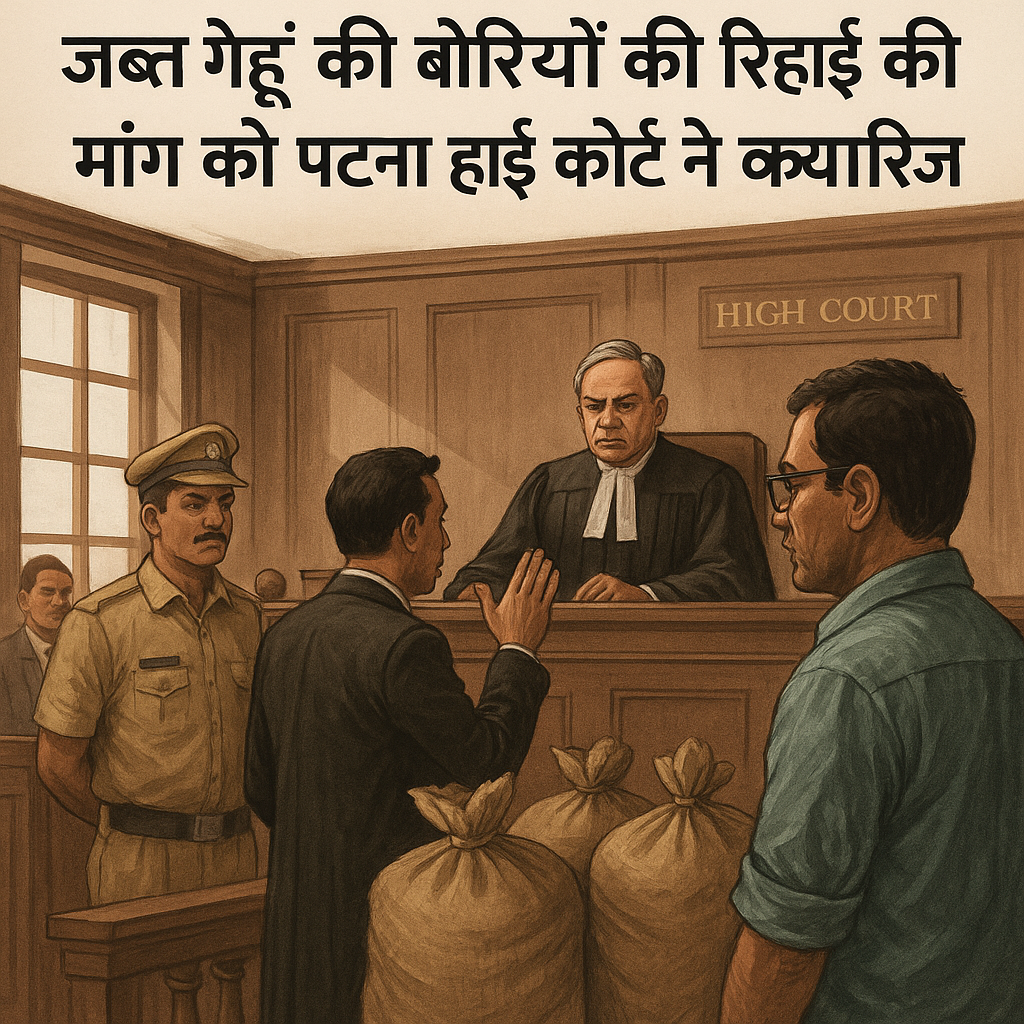Simplified Explanation of the Judgment
In this case, a private individual approached the Patna High Court seeking the release of 2,073 bags of wheat seized from his premises and trucks. The seizure occurred under allegations that the wheat was illegally acquired and possibly part of black-market activities. The case was registered under Section 7 of the Essential Commodities Act, 1955 (E.C. Act).
The petitioner claimed that he was a private trader, not linked with any public distribution system, and had procured the wheat from local cultivators for sale in the open market. He also claimed that the wheat was at risk of decay if not released soon and requested the Court to either release it or order compensation if it had already perished.
The State countered this by pointing out that a formal confiscation proceeding had already been initiated by the District Collector under Section 6-A of the E.C. Act. The petitioner had been given a notice and had responded to the proceedings.
The State further argued, citing the Supreme Court’s decision in Shambhu Dayal Agarwala v. State of West Bengal (1990) and a Full Bench decision of the Patna High Court in Baleshwar Roy v. State of Bihar [2018(4) PLJR 970], that the Collector has no authority to release seized essential commodities before confiscation proceedings are concluded. Furthermore, courts should refrain from ordering such releases under Article 226 unless there has been gross violation of procedure or manifest injustice.
Upon hearing both sides, the Patna High Court found that the seizure was done following due procedure. The petitioner had already been issued notice and was contesting the matter before the Collector. The Court noted that there was no evidence of procedural violation or exceptional injustice to justify judicial intervention at this stage.
Thus, the Court held that it would not exercise its discretionary powers under Article 226 to order the release of the seized wheat bags and dismissed the writ petition.
Significance or Implication of the Judgment
This judgment underscores judicial restraint in intervening in administrative confiscation proceedings under the Essential Commodities Act. It reinforces the legal position that seized goods cannot be released merely because of perishable nature unless statutory procedures are flouted or injustice is apparent.
For traders dealing in grains or other essential commodities, the ruling is a reminder that all transactions must be well-documented, particularly when dealing with commodities that fall under public distribution systems or government control.
From the government’s perspective, the judgment affirms its power to initiate and continue confiscation proceedings without premature interference by courts, provided procedures under the E.C. Act are followed.
This also discourages misuse of Article 226 writ jurisdiction for interim relief in regulatory matters where a structured process already exists.
Legal Issue(s) Decided and the Court’s Decision
- Can seized essential commodities be released during ongoing confiscation proceedings under the E.C. Act?
- No. The Court held such release is not permissible unless there is procedural violation or exceptional injustice.
- Does the High Court have power to intervene under Article 226 during confiscation?
- Yes, but only in rare and exceptional cases of procedural violation or gross injustice.
- Was the seizure of wheat illegal or without jurisdiction?
- No. The Court found no procedural defect or illegal conduct in the seizure process.
Judgments Referred by Parties
None mentioned as referred by petitioner or State.
Judgments Relied Upon or Cited by Court
- Shambhu Dayal Agarwala v. State of West Bengal & Anr., (1990) 3 SCC 549
- Baleshwar Roy v. State of Bihar, 2018(4) PLJR 970 (Full Bench, Patna High Court)
Case Title
Md. Jahangir v. The State of Bihar & Ors.
Case Number
CWJC No. 4479 of 2020
Citation(s)
2020 (2) PLJR 873
Coram and Names of Judges
- Hon’ble Mr. Justice Ashwani Kumar Singh
Names of Advocates and who they appeared for
- For Petitioner: Mr. Jitendra Kumar Giri
- For Respondents: Mr. Prashant Pratap (GP-2)
Link to Judgment
https://patnahighcourt.gov.in/viewjudgment/MTUjNDQ3OSMyMDIwIzIjTg==-S3psR–ak1–73vGo=
If you found this explanation helpful and wish to stay informed about how legal developments may affect your rights in Bihar, you may consider following Samvida Law Associates for more updates.









